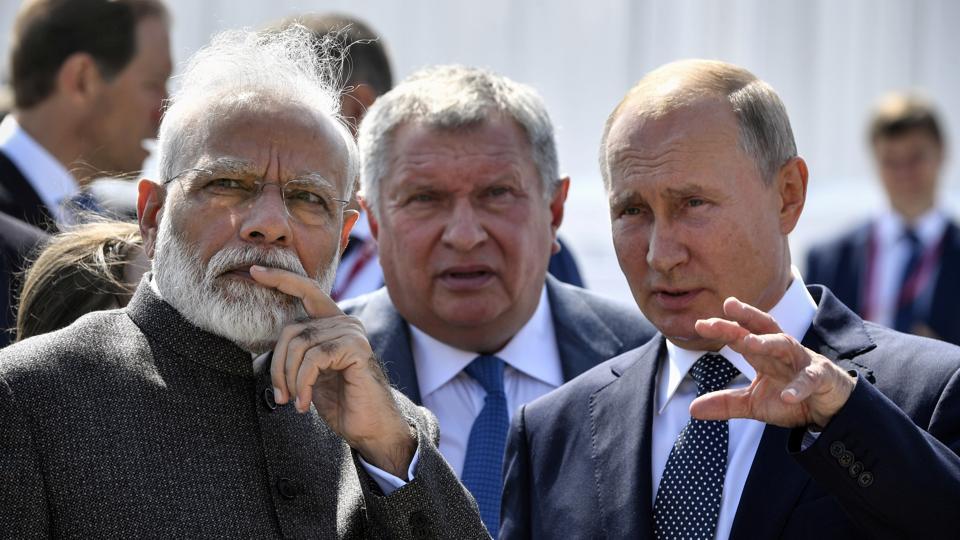India shared an excellent bilateral relationship with the erstwhile Soviet Union and the latter was India’s biggest defence and trade partner during the Cold War. However, after the fall of the Soviet Union the likes of China, USA, UAE managed to steal a march on Russia and emerge as India’s biggest trade partners. Although, India and Russia have maintained excellent relations despite none of them featuring in their respective list of Top 15 trade partners. Russia was one of the first countries to back India’s stance on Kashmir after India moved to abrogate Article 370 in Kashmir. Earlier this year, Prime Minister Modi was also conferred with the highest civilian honour of Russia ‘the Order of the Holy Apostle Andrew the First’ – a sign of the deep bond shared between Putin and Modi. While both the countries are geo-politically aligned on all the major issues, the same cannot be said about their geo-economic foundations as both the countries account for a meagre 1% of each other’s total trade volume. Prime Minister Modi currently on his visit to Russia, has taken steps which will provide fresh impetus to the trade relations with India’s time tested friend Russia.
PM Modi became the first Indian Prime Minister to visit Vladivostok and received a guard of honour upon his arrival the Vladivostok Airport. To take the Indo-Russian ties a step further, India and Russia have inked pacts which aims to boost bilateral trade to $30 billion by 2025. In 2018-19, the bilateral trade between the countries stood at $8.3 billion which has prompted both the countries to step up industrial cooperation and create new technological and investment partnership, especially in advanced high-tech areas. As a result, Russia is planning to set up 20 nuclear power units in India in the next 20 years. Russia helped India build the Kudankulam nuclear power plant and the first two units are already working with the third and fourth units currently under construction.
In a major shot in the arm for the ‘Make in India’ initiative, both the countries expressed their interest in increasing the participation of Russian businesses under the ‘Make in India’ initiative. The sanctions placed on Iran by the Trump Administration has certainly hurt India as it has been forced to end Iranian oil imports to comply with the US sanctions. India is the world’s third-largest oil consumer and importer and stares at a precarious situation if it fails to diversify its energy supply keeping in mind the current geopolitical scenario. India aims to raise the proportion of gas in its energy mix to 15% in the immediate future and is looking to import oil and gas from Russia. Both the countries are betting big on energy and hence, have signed multiple pacts on energy with India’s top gas importer Petronet LNG agreeing to buy liquefied natural gas (LNG) from Novatek and invest in the Russian company’s future projects.
Russia continues to import goods from China due to better connectivity which takes around 1-2 weeks for the goods to reach Russia as compared to 40-50 days taken if the goods are imported from India. However, both the countries are working to solve the connectivity issue mainly through the International North-South Transport Corridor (INSTC) that is 40 per cent shorter and 30 per cent cheaper than the present Suez route as Russia is increasingly getting uncomfortable with Chinese migration into the country.
While both the countries continue to enjoy excellent ties, it is unfortunately not reflected on their economic relations. The USA has also imposed sanctions on Russia which has made Russia dependent on China which does not bode well for India. A healthy bilateral trade relationship between India and Russia would lessen Russia’s dependence on China and increase Russia’s clout in the region, which will prove to be a major boon for India. It is in the strategic interests of both countries to increase their bilateral trade ties.
